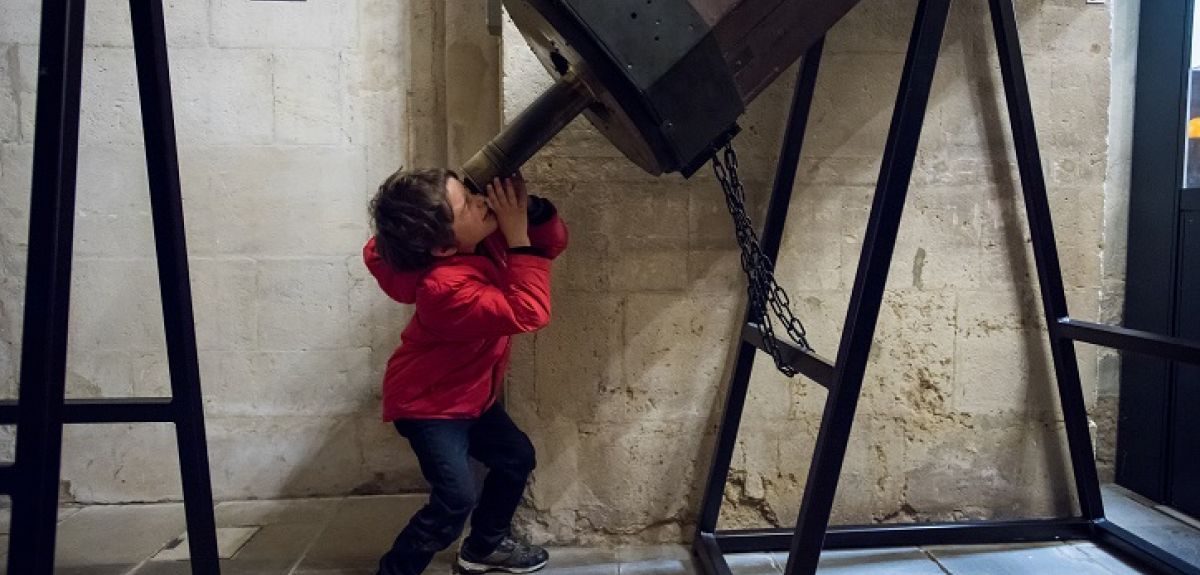
Image credit: Oxford University Museum of the History of Science
The sky’s the limit for Stargazing Oxford
Stargazing Oxford, the annual, calendar highlight for would-be astronomers of all ages, returns on Saturday 28 January 2017.
Featuring helpful tips on how to star-gaze at home, bite-sized flash talks covering the latest in astronomy and astrophysics research and the chance to take in the delights of the night sky with a range of telescopes, the event is a science lover’s dream.
Last year more than 1,200 people turned out to take in the wonders of the universe and learn first-hand, from the University of Oxford’s leading astronomers.
Workshops run by the University’s physics department and local experts from Oxfordshire’s amateur astronomy groups will take place throughout the day, and will answer questions that range from; ‘what constellations can you see in the night sky this month?’ to ‘why do stars explode’ and ‘is there life on other planets?’
Younger budding astronomers can participate in gravity defying experiments and road test their presenting skills, by hosting a space weather broadcast. The more leisurely inclined can take a tour of the night sky in an inflatable planetarium, or learn the art of AstroCrafts (age 6+).
Mark Richardson, a postdoctoral researcher in astrophysics at Oxford University, said: ‘It’s a free, fun packed day out for all the family, with a great purpose. Astronomy is a great gateway to science, for people of all ages. Children are naturally inquisitive and interested in the unknown, particularly understanding space and the world above them. It’s important to keep feeding this curiosity, otherwise our next, great astronomer may not choose a career in science.’
Details
Stargazing Oxford will take place on Saturday 28 January 2017 at Denys Wilkinson Building, Department of Physics, University of Oxford, Keble Road, Oxford OX1 3RH. Doors open at 2:00pm and close at 10:00pm (last entry is 9:30pm).
Booking: This is a drop-in festival style event. No booking is required but we ask groups of 10+ to contact us in advance. Talks, workshops and the planetarium will be taking place every hour. Observing will take place after dark only.
*As in previous years, the number of guests we can accommodate in the building at any given time is limited, so you may have to queue outside on our covered walkway. You won’t be bored as there will be plenty of scientists outside too, entertaining you while you wait.*
Disabled visitors: There is limited access for disabled visitors. Please contact us.
Refreshments: Light refreshments will be available to buy from the canteen.
Parking: There is no parking available on site. There may be some pay and display parking on Keble Road and Norham Gardens, but we recommend you use Oxford Park and Ride if you are travelling from outside Oxford.